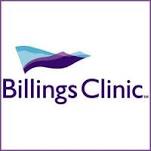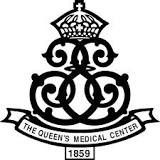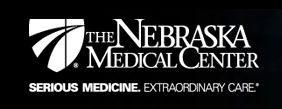Natural History of Brain Function, Quality of Life, and Seizure Control in Patients With Brain Tumor Who Have Undergone Surgery
| Status: | Recruiting |
|---|---|
| Conditions: | Cancer, Cognitive Studies, Cognitive Studies, Brain Cancer, Neurology, Psychiatric |
| Therapuetic Areas: | Neurology, Oncology, Psychiatry / Psychology |
| Healthy: | No |
| Age Range: | 18 - Any |
| Updated: | 3/16/2015 |
| Start Date: | October 2011 |
Natural History of Postoperative Cognitive Function, Quality of Life, and Seizure Control in Patients With Supratentorial Low-Risk Grade II Glioma
This trial studies the natural history of brain function, quality of life, and seizure
control in patients with brain tumor who have undergone surgery. Learning about brain
function, quality of life, and seizure control in patients with brain tumor who have
undergone surgery may help doctors learn more about the disease and find better methods of
treatment and on-going care.
control in patients with brain tumor who have undergone surgery. Learning about brain
function, quality of life, and seizure control in patients with brain tumor who have
undergone surgery may help doctors learn more about the disease and find better methods of
treatment and on-going care.
PRIMARY OBJECTIVES:
I. To determine if there is difference in the average changes of neurocognitive function
(NCF) scores from baseline to the time of radiologic tumor progression or up to 5 years
(whichever occurs first), between radiologically progressed and non-progressed patients.
SECONDARY OBJECTIVES:
I. To determine if there is difference in the time to neurocognitive decline, as defined by
the Reliable Change Index - Within subjects Standard Deviation (RCI-WSD), between
radiologically progressed and non-progressed patients.
II. To evaluate NCF during the postoperative observational period of progression-free
survival (PFS) and after radiological progression for a total time on study of 5 years.
III. To determine if the changes in cognitive functioning are an early warning biomarker for
radiological progression.
IV. To explore the effect of salvage therapy on cognitive outcomes in patients who progress
during the study period for up to 5 years.
V. To evaluate quality-of-life (QOL) as measured by the European Organization for Research
and Treatment of Cancer (EORTC) QOL-30 and QOL brain module (BCN20) and health utilities as
measured by the European Quality of Life-5 Dimensions (EQ-5D), for a total time on study of
5 years.
VI. To evaluate seizure control for a total time on study of 5 years. VII. To evaluate
molecular correlates of QOL, NCF, seizure control, and PFS. VIII. To characterize aberrant
molecular pathways in low-grade gliomas (LGGs) and test the hypothesis that activation of
signaling pathways will predict worse PFS and overall survival (OS).
IX. To explore the relationship between change in cognitive function and symptomatic
progression (defined as worsening seizures or new or progressive neurologic deficits) or
clinical progression (defined as initiation of treatment interventions such as radiotherapy,
chemotherapy, or additional surgery).
OUTLINE:
Patients undergo neurocognitive assessment using the CogState Test battery (the Detection
Test (DET), the Identification Test (IDN), the One Card Learning Test (OCLT), and the Groton
Maze Learning Test (GMLT)) at baseline* and at 12, 24, 36, 42, 48, 54, and 60 months.
Patients also complete the EORTC Quality of Life Questionnaire-Core 30 (QOL-30), the Brain
Cancer Module-20 (BCM20), and the European Quality of Life-5 Dimensions (EQ-5D)
questionnaires at baseline*, at 12, 24, 36, 48, and 60 months afterwards, and before
undergoing any further treatment. Patients are instructed to complete a seizure and
medication diary during study.
Patients undergo MRI scans at baseline*, at 12, 24, 36, 48, and 60 months, and at the time
of radiological, clinical, or neurological failure.
NOTE: * 12 weeks after surgery.
I. To determine if there is difference in the average changes of neurocognitive function
(NCF) scores from baseline to the time of radiologic tumor progression or up to 5 years
(whichever occurs first), between radiologically progressed and non-progressed patients.
SECONDARY OBJECTIVES:
I. To determine if there is difference in the time to neurocognitive decline, as defined by
the Reliable Change Index - Within subjects Standard Deviation (RCI-WSD), between
radiologically progressed and non-progressed patients.
II. To evaluate NCF during the postoperative observational period of progression-free
survival (PFS) and after radiological progression for a total time on study of 5 years.
III. To determine if the changes in cognitive functioning are an early warning biomarker for
radiological progression.
IV. To explore the effect of salvage therapy on cognitive outcomes in patients who progress
during the study period for up to 5 years.
V. To evaluate quality-of-life (QOL) as measured by the European Organization for Research
and Treatment of Cancer (EORTC) QOL-30 and QOL brain module (BCN20) and health utilities as
measured by the European Quality of Life-5 Dimensions (EQ-5D), for a total time on study of
5 years.
VI. To evaluate seizure control for a total time on study of 5 years. VII. To evaluate
molecular correlates of QOL, NCF, seizure control, and PFS. VIII. To characterize aberrant
molecular pathways in low-grade gliomas (LGGs) and test the hypothesis that activation of
signaling pathways will predict worse PFS and overall survival (OS).
IX. To explore the relationship between change in cognitive function and symptomatic
progression (defined as worsening seizures or new or progressive neurologic deficits) or
clinical progression (defined as initiation of treatment interventions such as radiotherapy,
chemotherapy, or additional surgery).
OUTLINE:
Patients undergo neurocognitive assessment using the CogState Test battery (the Detection
Test (DET), the Identification Test (IDN), the One Card Learning Test (OCLT), and the Groton
Maze Learning Test (GMLT)) at baseline* and at 12, 24, 36, 42, 48, 54, and 60 months.
Patients also complete the EORTC Quality of Life Questionnaire-Core 30 (QOL-30), the Brain
Cancer Module-20 (BCM20), and the European Quality of Life-5 Dimensions (EQ-5D)
questionnaires at baseline*, at 12, 24, 36, 48, and 60 months afterwards, and before
undergoing any further treatment. Patients are instructed to complete a seizure and
medication diary during study.
Patients undergo MRI scans at baseline*, at 12, 24, 36, 48, and 60 months, and at the time
of radiological, clinical, or neurological failure.
NOTE: * 12 weeks after surgery.
Inclusion Criteria:
- Central pathology confirmed diagnosis of supratentorial grade II oligodendroglioma,
astrocytoma, or mixed oligoastrocytoma prior to step 2 registration
- No multifocal disease, based upon the following minimum diagnostic work-up:
- History/physical examination, including neurologic examination, within 84 days
prior to step 2 registration
- Brain MRI with and without contrast within 84 days prior to Step 2 registration
(Note: MRI 70 days after surgery is preferred and highly encouraged)
- The patient must be within one of the following categories:
- Maximal safe resection with minimal residual disease defined as follows:
- Removal of T2/fluid-attenuated inversion recovery (FLAIR) abnormalities
thought to be primarily tumor, with a residual ≤ 2 cm maximal tumor
diameter/T2 FLAIR abnormality on MRI to be done within 84 days
post-operatively
- If there is > 2 cm post-operative residual T2/FLAIR abnormality and the
neurosurgeon believes this represents edema and not primarily tumor, the
neurosurgeon is encouraged to repeat imaging within the allowed study
period (up to 84 days post-operatively) to confirm resolution of edema
- MRI at the time of enrollment must document a ≤ 2 cm residual maximal
tumor diameter/T2 FLAIR abnormality
- Patients who required a second surgery to obtain a maximal safe resection
will be eligible if the second surgery is performed within 84 days of the
initial diagnostic procedure
- Age < 40 (any extent of resection)
- Age < 50 and preoperative tumor diameter < 4 cm (any extent of resection)
- Karnofsky performance status ≥ 80%
- No prior invasive malignancy (except non-melanomatous skin cancer) unless
disease-free for a minimum of 3 years (For example, carcinoma in situ of the breast,
oral cavity, or cervix are all permissible)
- Must be able to undergo MRI of the brain with gadolinium
- No plans for adjuvant radiotherapy or chemotherapy after surgery
- No more than 84 days (12 weeks) since prior surgery
- No brain tumor recurrence
- No prior brain tumor surgery, radiation therapy and/or chemotherapy
We found this trial at
39
sites
4755 Ogletown-Stanton Road
Newark, Delaware 19718
Newark, Delaware 19718
302-733-1000

Christiana Care Health System - Christiana Hospital A 913-bed, 1.3-million-square-foot, modern facility in Newark, Delaware,...
Click here to add this to my saved trials
University of Alabama at Birmingham The University of Alabama at Birmingham (UAB) traces its roots...
Click here to add this to my saved trials
Montefiore Medical Center As the academic medical center and University Hospital for Albert Einstein College...
Click here to add this to my saved trials
Click here to add this to my saved trials
Univ of Hawaii Honolulu Community College is an integral part of the University of Hawai?i,...
Click here to add this to my saved trials
The Florida Hospital Florida Hospital is one of the country’s largest not-for-profit health care providers...
Click here to add this to my saved trials
University of Rochester The University of Rochester is one of the country's top-tier research universities....
Click here to add this to my saved trials
Piedmont Hospital For more than a century, Piedmont Healthcare has been a recognized leader in...
Click here to add this to my saved trials
Billings Clinic Based in Billings, Montana, Billings Clinic is a community-governed health care organization consisting...
Click here to add this to my saved trials
Click here to add this to my saved trials
University of Cincinnati The University of Cincinnati offers students a balance of educational excellence and...
Click here to add this to my saved trials
Geisinger Medical Center Since 1915, Geisinger Medical Center has been known as the region’s resource...
Click here to add this to my saved trials
2650 Ridge Ave.
Evanston, Illinois 60201
Evanston, Illinois 60201
847.570.2000

Evanston CCOP-NorthShore University HealthSystem Evanston Hospital, opened in 1891, is the nucleus of the NorthShore...
Click here to add this to my saved trials
Click here to add this to my saved trials
Adams Cancer Center Every day across central Pennsylvania, the people of WellSpan Health work together...
Click here to add this to my saved trials
Click here to add this to my saved trials
Saint Mary's Hospital Our team of dedicated physicians, nurses and staff offer a broad spectrum...
Click here to add this to my saved trials
Click here to add this to my saved trials
500 University Dr
Hershey, Pennsylvania 17033
Hershey, Pennsylvania 17033
(717) 531-6955

Penn State Milton S. Hershey Medical Center Penn State Milton S. Hershey Medical Center, Penn...
Click here to add this to my saved trials
Click here to add this to my saved trials
Queen's Medical Center The Queen's Medical Center, located in downtown Honolulu, Hawaii, is a private,...
Click here to add this to my saved trials
Click here to add this to my saved trials
Click here to add this to my saved trials
Click here to add this to my saved trials
9200 W Wisconsin Ave
Milwaukee, Wisconsin 53226
Milwaukee, Wisconsin 53226
(414) 805-3666

Froedtert and the Medical College of Wisconsin Froedtert Health combines with the Medical College of...
Click here to add this to my saved trials
Click here to add this to my saved trials
940 NE 13th St
Oklahoma City, Oklahoma 73190
Oklahoma City, Oklahoma 73190
(405) 271-6458

University of Oklahoma Health Sciences Center The OU Health Sciences Center is composed of seven...
Click here to add this to my saved trials
Nebraska Medical Center Formed in 1997 by combining the operations of University Hospital, Bishop Clarkson...
Click here to add this to my saved trials
Click here to add this to my saved trials
Click here to add this to my saved trials
Click here to add this to my saved trials
Mayo Clinic Rochester Mayo Clinic is a nonprofit worldwide leader in medical care, research and...
Click here to add this to my saved trials
Click here to add this to my saved trials
660 S Euclid Ave
Saint Louis, Missouri 63110
Saint Louis, Missouri 63110
(314) 362-5000

Washington University School of Medicine Washington University Physicians is the clinical practice of the School...
Click here to add this to my saved trials
2000 Circle of Hope Dr
Salt Lake City, Utah 84112
Salt Lake City, Utah 84112
(801) 585-0303

Huntsman Cancer Institute at University of Utah Huntsman Cancer Institute (HCI) is part of the...
Click here to add this to my saved trials
Mayo Clinic Arizona Mayo Clinic in Arizona provides medical care for thousands of people from...
Click here to add this to my saved trials
Click here to add this to my saved trials
Click here to add this to my saved trials
















